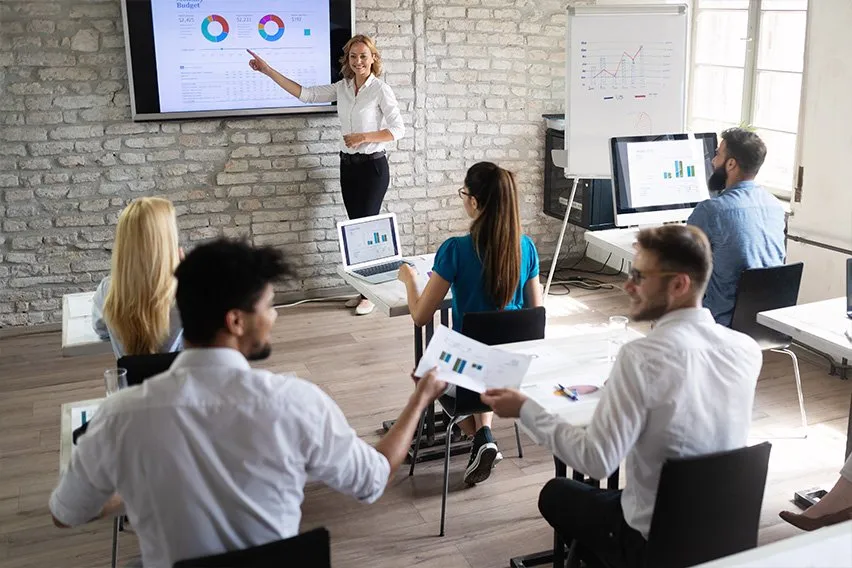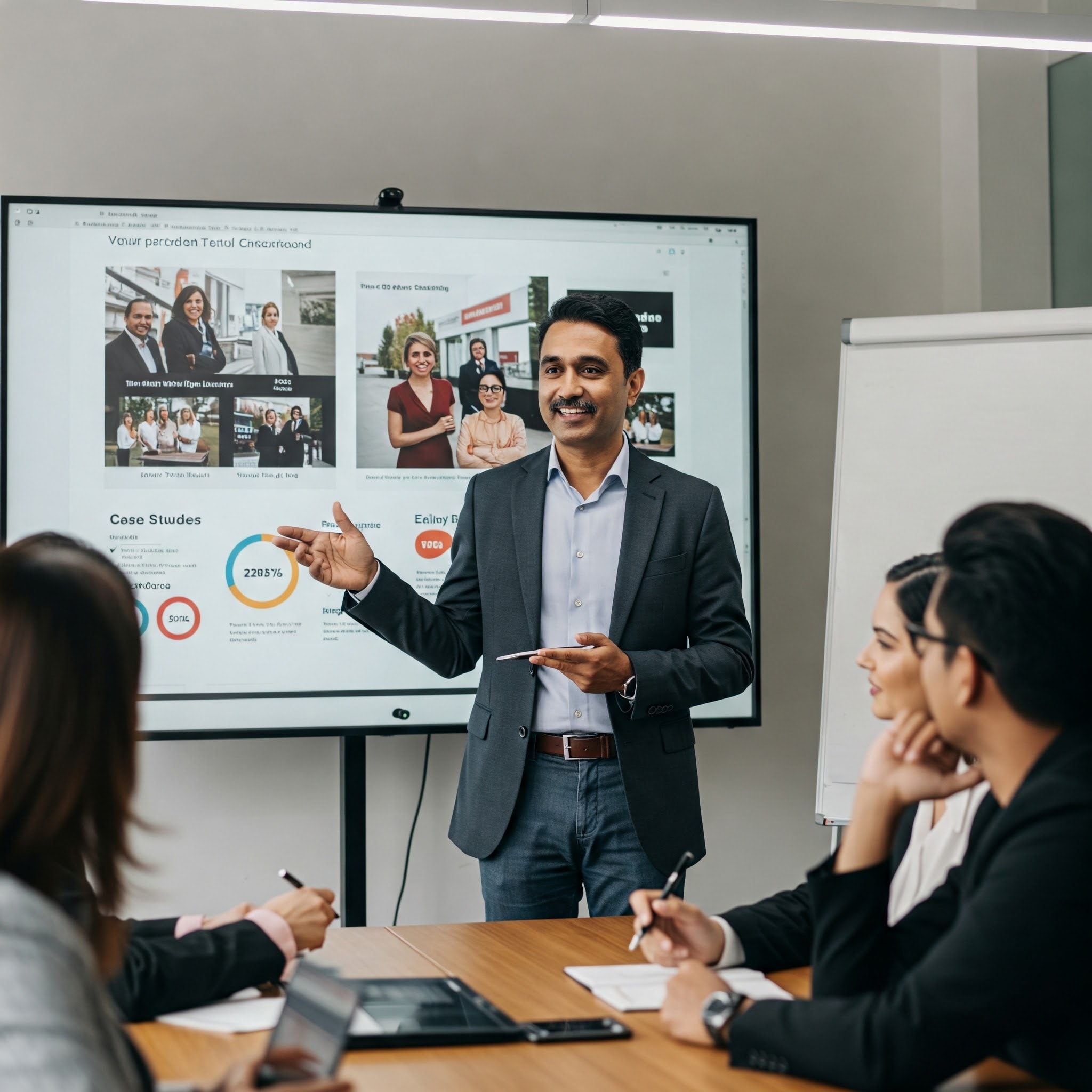Why Sales Closer Training Matters in Today’s Market
In today’s competitive business landscape, buyers are more informed than ever. They research products, compare options, and often enter conversations with pre-set expectations. This shift makes the role of a sales closer more important than at any other time. Sales closer training equips professionals with the tools they need to handle objections, build relationships, and convert hesitant leads into paying customers. Without proper training, even the most promising opportunities can slip away. Businesses that invest in developing skilled closers often see significant boosts in their conversion rates. Well-trained closers don’t just secure more deals—they also foster trust and long-term loyalty among customers. With the right training, a sales closer transforms from a transactional seller into a trusted advisor who consistently drives revenue.
Essential Skills Every Sales Closer Must Develop
A strong closer must master an array of soft and hard skills to thrive. One of the most critical abilities is building trust and rapport, since customers are far more likely to buy from people they feel understand them. Another vital skill is active listening, which allows a closer to pick up on subtle clues and address concerns the prospect may not openly share. Persuasive communication is equally important, but it must be authentic rather than pushy. A sales closer who frames solutions in terms of customer benefits creates stronger impact. Negotiation also plays a central role, helping both sides reach outcomes where everyone wins. Training helps professionals refine these skills in practical settings, ensuring they can perform under real-world pressure. The more these abilities are honed, the more confident and consistent a closer becomes when sealing deals.
Core Elements of Effective Sales Closer Training Programs
The most impactful training programs go beyond surface-level sales tips. They provide structured modules that cover every stage of the sales cycle—from prospecting to qualifying leads, addressing objections, and confidently closing. Role-playing is one of the most effective techniques used in these programs. By simulating real sales conversations, closers gain hands-on experience without the risk of losing actual clients. Training also delves into sales psychology, teaching closers how to understand buyer behavior and decision-making patterns. Feedback and coaching sessions provide opportunities to correct mistakes in real time, leading to steady improvement. Another key element is accountability, which encourages professionals to track progress and refine techniques consistently. Programs that combine structure, practice, psychology, and feedback often deliver lasting results for sales professionals and their organizations.
Common Challenges Sales Closers Face and How Training Solves Them
Even experienced salespeople encounter challenges that can stall or derail a deal. One of the most common obstacles is rejection, which can take a toll on confidence if not handled correctly. Sales closer training teaches resilience strategies that help professionals bounce back quickly after setbacks. Price objections are another frequent hurdle, and training provides tools to reframe value rather than relying on discounts. Many closers also struggle with deals that drag out over long sales cycles, causing frustration and lost momentum. Training programs address this by offering techniques to keep prospects engaged and moving forward. Another challenge is maintaining consistency across different sales situations. Training builds a foundation of proven techniques that can be adapted to any environment, giving closers confidence no matter the scenario. By systematically addressing these challenges, training ensures professionals stay focused, skilled, and motivated.
The Role of Technology in Sales Closer Training
Modern technology has revolutionized how training is delivered and tracked. AI-driven coaching tools now analyze sales calls, providing detailed feedback on tone, language, and objection handling. CRM platforms allow closers to organize leads, track engagement, and tailor their approach with data-backed insights. Online training modules and virtual bootcamps make sales closer training accessible to professionals worldwide, regardless of location. These tools offer flexibility while maintaining depth and personalization. Video conferencing platforms also allow role-playing and group training sessions to happen remotely without losing impact. As technology continues to advance, data-driven learning ensures that training is not just theoretical but applied in real, measurable ways. For organizations, this means consistent development and improved sales performance across entire teams.
How to Choose the Right Sales Closer Training Program
With so many training options available, selecting the right program can feel overwhelming. Businesses should first identify specific goals, whether it’s increasing conversion rates, handling objections better, or improving negotiation skills. The reputation and experience of the trainer or training company are also critical factors. In-house programs may provide tailored experiences for a company’s unique challenges, while external training can bring fresh perspectives and methodologies. Another consideration is the format—some closers thrive in intensive workshops, while others benefit from ongoing mentorship and online modules. Results should be measurable, so organizations should look for programs that track performance improvements over time. Additionally, the best programs balance theory with practical exercises, ensuring that concepts translate into real-world results. A carefully chosen training program becomes an investment that consistently pays off through stronger closing performance.
Real-World Applications of Sales Closer Training
Sales closer training applies across industries, but how it’s used often depends on the sales environment. In B2B sales, training helps closers handle complex negotiations, long cycles, and multiple stakeholders. In B2C environments, the focus is often on building quick trust and moving prospects toward confident buying decisions. Training is particularly valuable in high-ticket sales, where customers need reassurance before making large financial commitments. Professionals in real estate, finance, and technology frequently benefit from these advanced skills. Even in retail or direct sales, training helps improve efficiency and customer satisfaction. Regardless of industry, the principles of rapport-building, objection handling, and persuasive communication remain the same. With consistent application, closers see improvements not just in numbers but also in the strength of their customer relationships.
Building a Continuous Growth Mindset as a Sales Closer
Sales is a career where growth never stops, and training emphasizes the importance of adopting a continuous improvement mindset. Developing resilience means seeing every interaction as a chance to learn rather than a win-or-lose scenario. Seeking mentorship and feedback accelerates progress by providing outside perspectives. Small, consistent adjustments—whether refining word choice or testing new objection-handling methods—compound into long-term success. Training encourages professionals to track their progress and celebrate small wins along the way. This ongoing development helps closers stay ahead in a competitive market where buyer behavior constantly evolves. A growth mindset not only sharpens technical skills but also boosts confidence, motivation, and adaptability. By investing in personal and professional development, sales closers ensure their relevance and effectiveness in every stage of their careers.
Frequently Asked Questions (FAQ)
What is sales closer training and who needs it?
Sales closer training is a structured program that teaches professionals the skills and strategies needed to convert leads into paying clients. It is valuable for both new salespeople and seasoned professionals looking to sharpen their abilities.
How long does it typically take to see results?
Results vary depending on the program and the individual, but many professionals notice improvements in confidence and performance within weeks of consistent practice.
Is online sales closer training effective compared to in-person programs?
Yes, online programs can be highly effective, especially with interactive modules, role-playing sessions, and AI-driven feedback. The key is choosing a reputable provider.
What’s the difference between a sales representative and a sales closer?
A sales representative typically handles the entire sales process, while a closer specializes in the final stages—overcoming objections and securing the deal.
Can beginners benefit from sales closer training, or is it only for experienced professionals?
Beginners can absolutely benefit. Training builds a strong foundation early on, helping new salespeople avoid common mistakes and accelerate their career growth.











